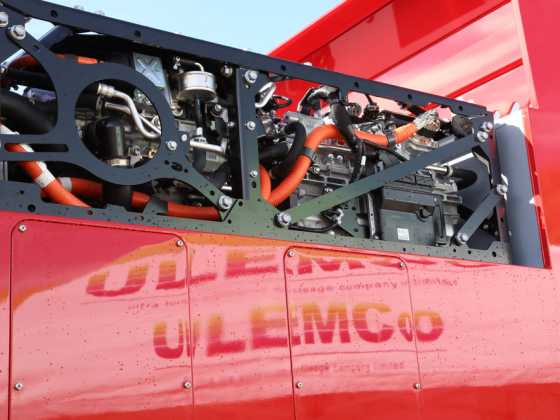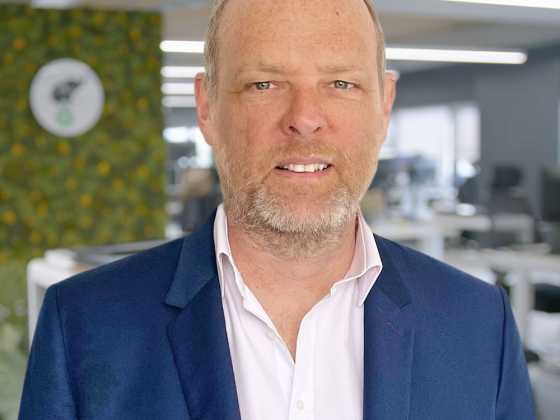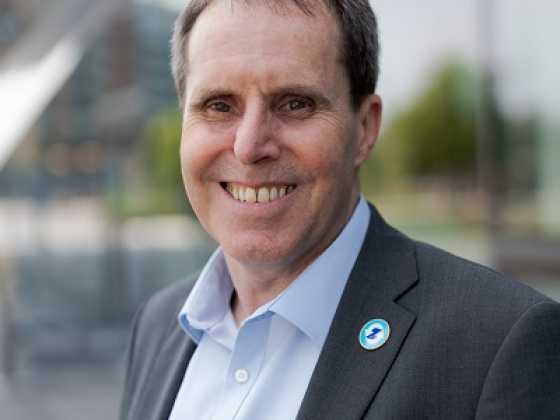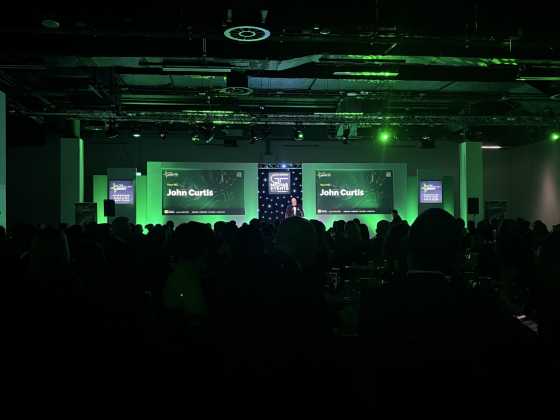A pledge to go electric
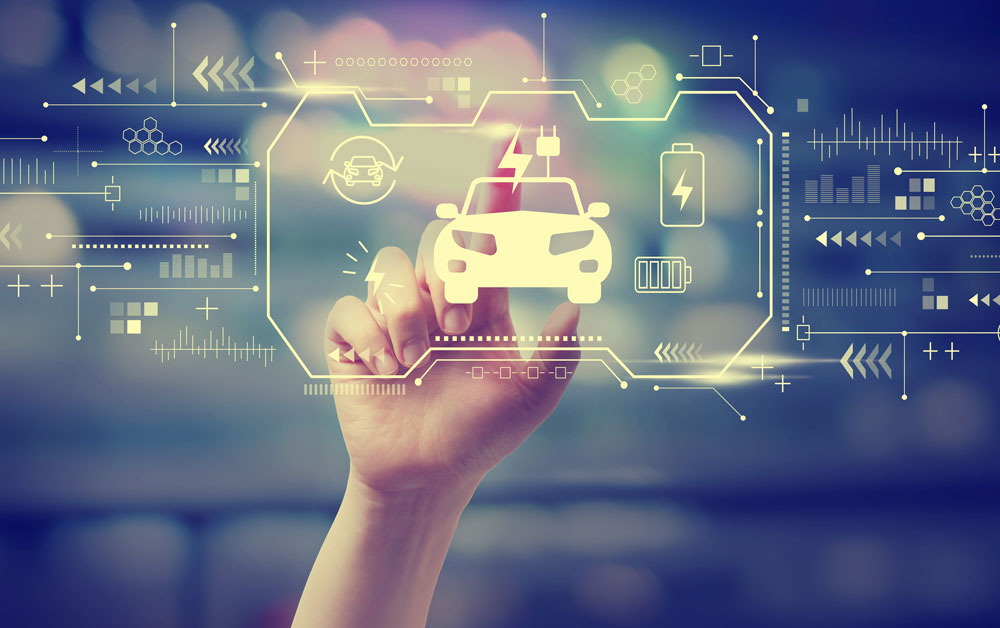
The EV100 initiative, which sees carbon-conscious organisations pledge to transition to an electric vehicle fleet by 2030, has recently celebrated its fifth anniversary. We look at how the initiative has progressed from having ten founding members, to now boasting 128 signatories
The EV100 initiative brings together like-minded companies committed to accelerating the transition to electric vehicles. Through a collective pledge to go electric by 2030, the initiative sends a powerful signal that the future of transportation is electric.
The initiative, now in its fifth year, has recently taken on five new members who will collectively transition over 44,000 vehicles to electric by 2030.
New joiners include global pharmaceutical and biosciences company Bayer, British-based multinational bank Barclays, international financial services provider Allianz SE, India’s fastest-growing agri-commerce company WayCool and precision instrumentation supplier Spectris Plc.
In addition to electrifying their fleets, WayCool and Spectris Plc have also committed to installing charging infrastructure across their estate for use by their staff and customers.
With these new joiners, membership now stands at 128. In five years, EV100 has grown from ten founding members to a global network of businesses committed to the growth of electromobility across almost 100 markets worldwide.
Why did it start?
EV100 was launched in 2017 as a global business initiative designed to accelerate acceptance of electric vehicles and its infrastructure. It was launched in New York by The Climate Group during Climate Week. At the time, it was the only initiative of its kind to encourage global businesses to commit to electric transport, with members committing to transition their petrol and diesel fleets to electric vehicle fleets by 2030. The 10 founding founding members are LeasePlan, Unilever, Baidu, IKEA Group, HP Inc., Vattenfall, PG&E, Deutsche Post DHL, Metro AG and Heathrow Airport.
At the time, Helen Clarkson, CEO of The Climate Group, said: “EV100 will use companies’ collective global buying power and influence on employees and customers to build demand and cut costs. The members see the business logic in leading a faster transition and addressing local air quality issues in their markets. They are setting a competitive challenge to the auto industry to deliver more EVs, sooner and at lower cost.”
Net zero goals
One of the five new joiners is Barclay’s bank, who has a commitment to electrify its UK fleet by 2025, and global fleet by 2030. Myriam Coneim, Barclays’ global sustainability and governance lead, operations, said: “In March 2020 we become one of the first banks to announce an ambition to be net zero by 2050, which includes our operational emissions. To decarbonise our operations, earlier this year we committed to transitioning all of our UK vehicle fleet to electric by 2025 with an additional target of 2030 for our global fleet, using ultra-low emissions vehicles for the latter where electric is not viable.
“Addressing this viability challenge was key to our decision to join EV100, and we look forward to working together with Climate Group and other members to speed up the transition to electric, particularly in less mature EV markets.”
Rebecca Dunn, head of sustainability at Spectris, said: “It’s an exciting time for EV100 and we are pleased to be one of the latest companies to sign up to this ambitious initiative. We’re committing to electrifying our 430-strong fleet and rolling out charging infrastructure for our staff and customers. Committing to EV100 now will help us achieve our net zero by 2040 target. We’re looking forward to working with likeminded companies and working with our supply chain and customers to develop their own EV fleets, too.”
Werner Baumann, CEO and chief sustainability officer at Bayer, said: “We are pleased to be joining EV100. As a leading Life Science company, we have implemented ambitious sustainability targets and the decision to convert our vehicle fleet to electric cars is another important step. It shows how serious we are about becoming climate neutral. As part of our EV100 commitment, we will transition 26,000 vehicles to electric wherever technically and economically feasible.”
Karthik Jayaraman, managing director of WayCool Foods, said: “We are happy to join EV100 at this time of celebration for the initiative. The food and agri sector contribute to global GHG emissions significantly. As a purpose driven organisation, and one of India’s fastest growing food and agri tech platforms, we are committed in developing and driving a climate resilient supply chain and a sustainable food economy. In the past seven years, we have demonstrated with multiple case studies how organisations can be ClimateSmart and BusinessSmart too. Electrification of the fleet is one of our prime focus areas. We have valuable insights to share with the wider EV100 community, having already transitioned 20 per cent of our last-mile delivery fleet to EVs, and we look forward to playing an active and collaborative part in the journey to fully electric road transportation.”
Barbara Karuth-Zelle, member of the board of management at Allianz SE commented: “We are excited to join EV100 at this time of celebration for the initiative. Our commitment will see Allianz transition its car fleet of over 14,000 vehicles to sustainable fuel by 2030. We look forward to playing an active and collaborative part in accelerating the journey to 100 per cent sustainable mobility.”
Commenting on the new members, Sandra Roling, director of transport at the Climate Group, said: “We warmly welcome our five new members who have made the bold commitment to electrify their fleets and deploy charging infrastructure by 2030. It’s amazing to think that in just five years EV100 has grown so rapidly. We will continue to push other businesses, vehicle manufacturers and governments across the world to work with us to ensure the future of road transportation is electric.
“I also want to say a huge congratulations to every single EV100 member as we celebrate five years, for the progress made so far on their journey with us. Over 200,000 EVs are already on the road thanks to EV100 members, and by 2030 over 5.5 million fleet vehicles will be zero emission.”
Saving emissions
One of the early members of the EV100 is facilities management company Mitie, who are successfully progressing towards their goal of having an electric fleet by 2025.
Mitie has a range of electric cars, vans, and even a gritter, taking its total, as of the end of 2021, to more than 2,000 EVs, consisting of 15 different models. The vehicles are based throughout the UK, from the Scottish Highlands and Islands down to the Cornish coast, as well as EVs working on Mitie’s contracts supporting the UK’s Overseas Territories, including Ascension Island. In addition, Mitie has invested heavily in the UK’s electric vehicle charge point infrastructure, installing thousands of charge points for a broad range of its customers, as well as at employees’ homes.
The transition to a wholly electric fleet is a central component of Mitie’s Plan Zero commitment to eliminate carbon emissions from its power and transport. Its current fleet of EVs reduces Mitie’s annual CO2 emissions by around 10,000 tonnes and the business has a detailed timeline to switch the rest of its vehicles to zero emission by 2025. In addition to this, the Mitie Fleet Team has put a series of measures in place to reduce the emissions of its existing petrol and diesel vehicles, such as a Telematics Driver Behaviour system that has reduced diesel consumption by 75,000 litres and saved 19.5 tonnes of CO2 in just one year.
Heavy-goods vehicles
Following on from the success of the EV100 initiative, the Climate Group has recently launched a new transport leadership commitment, EV100+, which targets medium and heavy duty vehicles, which are currently harder to electrify.
Five globally recognised businesses – IKEA, Unilever, JSW Steel Limited, A.P. Moller – Maersk and GeoPost/DPDgroup – are the founding members of the initiative. Together they have committed to transition their fleet of vehicles over 7.5 tonnes to zero emission by 2040 in OECD markets, China and India.
Representing just four per cent of all vehicles on the road globally, medium to heavy duty vehicles (MHDVs) account for 40 per cent of all road transport emissions and a third of total transport fuel use. These vehicles produced over five per cent of total global CO2 emissions in 2019, predicted to increase to over 11 per cent by 2050 if steps to decarbonise are not taken.
To achieve the objectives of the Paris Agreement, heavy-duty road transport must be completely decarbonised. With advances in technology making it possible, all new trucks sold in the world’s major markets must be zero emission by 2040.
Sandra Roling, director of transport at Climate Group, comments: “We’re very excited to launch EV100+ at this year’s Climate Week NYC. It’s a great demonstration of leadership from the founding members. MHDVs represent the final frontier of zero emission road transportation, and EV100+ will tackle the heaviest, most polluting vehicles on our roads around the world.”
Sandra added: “We’ve seen over the last five years how EV100 has acted as a powerful catalyst for change across light-duty vehicle fleets. Now it’s time for EV100+ to drive this change across global MHDV fleets as well – businesses are willing to lead this change.”
EV100+’s founding members are helping to drive demand for zero emission MHDVs from manufacturers and supporting governments in implementing policies that encourage their adoption at the speed and scale needed.
Elisabeth Munck af Rosenschöld, IKEA supply chain operations manager, said: “Key to accelerating the deployment of zero-emission trucks is to collaborate across the transport industry with confidence and clarity on the direction. The electrification of transport plays a big role in phasing out fossil fuels in the IKEA supply chain. We are joining EV100+ to magnify the movement toward sustainable transportation. It is urgent and doable.”
Morten Bo Christiansen, SVP, head of decarbonisation at A.P. Moller – Maersk, adds: “We are thrilled to be one of the founding members of Climate Group’s new EV100+ initiative alongside other leading businesses. In A.P. Moller – Maersk, we are committed to transition our entire business to net zero emissions by 2040 – including our landside business. This initiative sends a powerful message to customers, partners, and manufacturers that we believe the future of our global medium- and heavy-duty fleet is net zero emissions.”
Sanjay Rath, executive vice president for commercial and purchase at JSW Steel Limited, commented=: “By joining EV100+ initiative as a founding member, we at JSW Steel advance our commitment to support India’s net zero goal. JSW Steel has an ambitious target of reducing its carbon emission by 42 per cent (versus base year 2005) by FY30.
“We are currently on the journey towards achieving the target through a strategic climate action agenda and various steps in our operations. Through this commitment we would want to decarbonise our freight operations by transitioning the fleet (in heavier segments > 7.5t) to electric vehicles or alternatives, thus allowing our unrelenting desire to become better everyday.”
Michelle Grose, VP, global logistics and fulfilment at Unilever, adds: “Unilever has set the goal of achieving net zero emissions across our value chain by 2039, and logistics is a key area of focus since it accounts for 15 per cent of our total footprint. In recent years we’ve made big strides on CO2 savings by improving efficiency and reducing the number of trucks on the road. Now, alongside our EV100+ partners we’ll be sending a powerful signal to governments, manufacturers and the wider industry that the future of global medium- and heavy-duty road transport is electric, and we hope to inspire other companies to join us.”
Jean-Claude Sonet, executive vice president in charge of marketing, communication and sustainability at GeoPost/DPDgroup, says: “We are committed to sustainable delivery and have set ourselves a bold ambition to reach net zero by 2040. Yet success will depend on our ability to transition our medium- and heavy-goods vehicles to zero tailpipe emissions by 2040. All sectors must work together if society is to be meet global climate goals. We are therefore excited to work alongside other like-minded businesses to send a powerful message to both governments and manufacturers that we believe the future of trucking is zero emission.”

